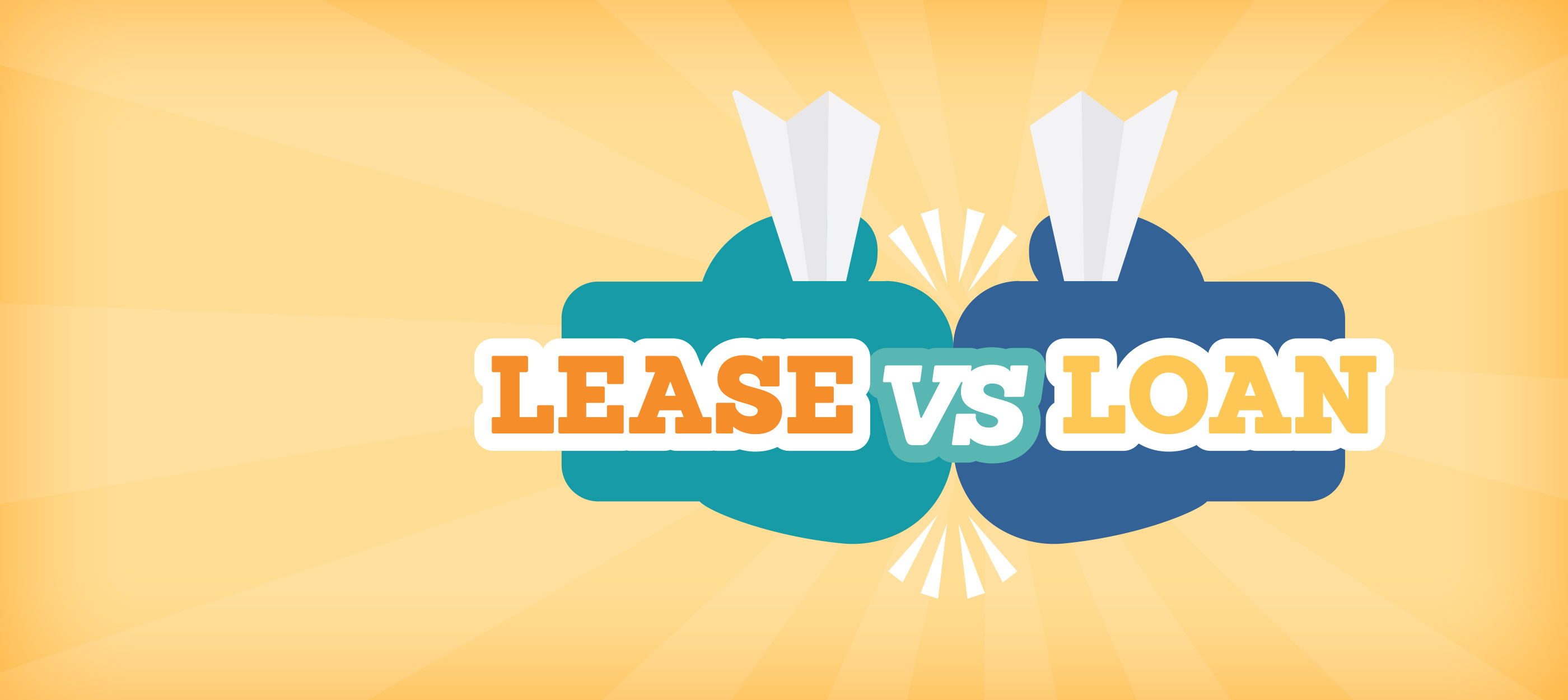
Lease vs. Loan
Compare the differences between an equipment lease and a loan with our comparison table and make the right equipment acquisition choice for your business.
See full post

By: Mike McInerney, Regional Sales Manager in Ontario
Now you’re wondering if you should enter into an equipment lease or a loan.
Both options offer the advantages of financing but each decision has its own financial nuances that affect your business’s finances differently. Use our comparison table below to learn the differences between the two so you can make an educated decision.
Lease |
Loan |
|
|---|---|---|
| How do my payments affect financing? | Lease payments either act as rental payments through an operating lease or repayments with interest through a capital lease. | Your payments are repayments with interest that reduce the principal of your loan. |
| Will I own the equipment? | The leasing company owns the equipment during the lease and you pay the equivalent to rental payments; however, most leasing companies provide the option to purchase the equipment at the end of the lease term. | During a loan, you assume all ownership responsibility of your equipment. |
| Will I make a down payment? | No down payment is usually required. | Loans usually require a down payment. You’ll then finance the remaining equipment cost. |
| How frequently do I pay? | You can usually structure your payments to match your cash flow with monthly, seasonal, semi-annual or annual payments. | You’ll generally pay monthly but depending on the flexibility of your financial institution, you may structure your payments to better match your cash flow. |
| Will I need to pledge any collateral? | A lease usually requires no collateral since the equipment leased serves as collateral. | Depending on your credit, you may need to pledge other assets as collateral before securing financing. |
| How does my equipment depreciate and what are its tax implications?* |
With an operating lease, you’ll make the equivalent of rental payments for your equipment and you can write off the full portion of your lease payments as an expense. With a capital lease, you’ll assume liabilities of ownership for accounting purposes; however, you can likely deduct the full amount of your lease payments. Check out this article from James Byrne from MNP for a better idea. |
You’ll claim tax deductions for the interest paid on your loan and, since you own the equipment, you’ll amortize the equipment over its useful life. This means you’ll write off the annual amortization based on the equipment’s Capital Cost Allowance determined by Canada Revenue Agency. |
| What happens if my equipment becomes obsolete? | You can regularly trade up your equipment at the end of your lease and structure new financing. Sometimes, it’s even possible to refinance a trade up during your lease, protecting you from your equipment becoming outdated. | Because you assume full ownership with a loan, you’re left with the equipment and bear the risk of obsolescence. |
| Does this affect my line of credit? | Leasing preserves your line of credit for other opportunities. | You may increase your credit exposure if you secure your loan at the same institution where you hold your line of credit. |
*Consult your accountant to learn more about your tax position.
Both options will preserve your cash flow and keep your business financially flexible but your business’s financial situation and equipment needs will determine which choice is right for you. If your equipment requires regular upgrades, the trade-up option from leasing is a major benefit. If you prefer tax deductions in the long run, rather than in the short term with leasing, a loan is your best choice.
Still unsure which option is right for you? Complete our form below or give us a call at 1-888-599-1966 and an Account Manager will help answer your equipment financing questions.
Posted in Equipment leasing advice,
Contact us and we'll call you right away